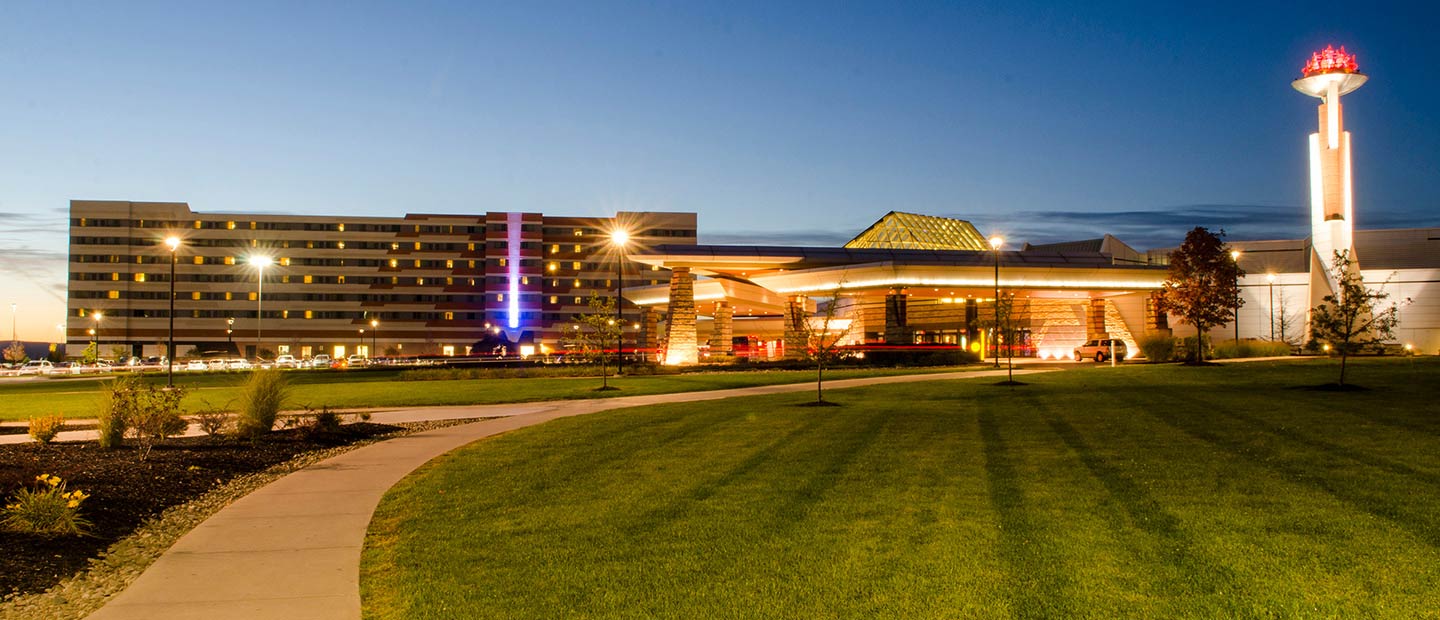Pennsylvania first launched legal casino gambling in 2006 when the first legal slot machines opened up at racetrack and casino properties across the state.
In addition, the Pennsylvania State Police and the Pennsylvania Gaming Control Board (PGCB) have a 24/7 presence in every Pennsylvania casino, including surveillance cameras. The Pennsylvania Gaming Control Board was created in 2004 to regulate slot machines and casino gambling in the state. Table games were added in July 2010. The gaming board has licensed 11 slot machine casinos to operate in the state.
On Monday, the Pennsylvania Gaming Control Board put out a public notice in an effort to put a spotlight on the state's process of resolving complaints and disputes between patrons and online casinos. The PGCB said it was 'reminding the public of the availability of online forms' that help resolve these issues.
Since then, 12 legal gambling operations opened their doors, and a 13th is currently under construction in Philadelphia.
The original authorization for slot operations came from Pennsylvania's Racehorse Development and Gaming Act, which was signed into law on July 5, 2004. In fact, the act created the Pennsylvania Gaming Control Board (PGCB) to oversee casino gambling in the state. Plus, it also created three categories of casino licenses governing gambling operations.
Category 1 licenses are for the state's existing racetracks.
Category 2 licenses for stand-alone casino operations.
Category 3 licenses are for resort casinos.

Pa Casino Gaming Commission
In 2010, lawmakers amended the Act to allow for the operation of table games inside all three types of licensed facilities.
Plus, in 2017, the state passed a comprehensive gambling expansion package. It authorized the issue of online gambling licenses. Plus, this new set of laws created a fourth casino license category for satellite, or mini-casinos, across the state.
Here's a look at the now four types of land-based PA casino licenses and exactly what each authorizes:
Category 1 – Racinos
Category 1 casino licenses were designed to help bolster the state's struggling horse racing industry. The state's existing racetracks were invited to apply for these Category 1 licenses and turn their horse racing facilities into a combination racetrack/casino known widely as a racino. The state planned to award no more than seven Category 1 licenses.
Each license permits the racetrack facility to host as many as 250 table games and 5,000 slot machines.
Six racetracks applied for Category 1 licenses and were approved. The list of currently operating Category 1 licensed Racinos in the state includes:
In order to apply for the license, existing racetracks were required to host live racing for at least two years prior. In order to keep it, live racing must occur at the property at least 100 days every year.
If a new racetrack property wants to apply for a Category 1 license, it must host live racing for a minimum of 150 days by its second year.
Category 2 – Stand-alone casinos
Category 2 licenses are for classic casino operations. There are currently five Category 2 licenses in the state. These are the four that are open:
The state granted a Category 2 license to Stadium Casino LLC. This entity is a partnership between Cordish Cos. and Parx Casino and racing owners Greenwood Gaming & Entertainment Inc. They are currently building a casino complex in South Philadelphia's sports stadium district. The complex should open in 2020.
Category 2 license holders can operate the same 250 table games and 5,000 slot machines the state's Category 1 license holders can. They can also offer major resort amenities, including restaurants, spas, and entertainment.
However, Category 2 licensees are not permitted to operate hotels directly connected to the casinos. Although, hotels may be built elsewhere on the property.

Category 2 licensees must build casinos in major cities or tourist areas. Additionally, they must be outside of a 30-mile radius of any Category 1 Racino.
Pennsylvania Gaming Board
Category 3 – Resort casinos
Category 3 licenses are for resort casino properties. The law authorizes the state to issue three of these licenses. So far, there are only two Category 3 casinos. These are:
Gaming options are restricted to 600 slot machines and 50 tables. However, these are the only gaming facilities that can have attached hotels.
Initially, casino players had to either be hotel guests or pay a fee to use the property's amenities. However, as a part of the state's 2017 gambling expansion, Category 3 licensees could pay a $1 million fee to remove the amenity fee provision.

Category 3 licensees can now also pay another $1 million to add an additional 15 table games and $2.5 million to add up to 250 slot machines.
Category 4 – Satellite Casinos
The comprehensive gambling expansion laws passed by PA legislators in October 2017 authorized the issue of up to 10 Category 4 satellite casino licenses
These mini-casinos can operate anywhere from 300 to 750 slot machines and up to 30 table games. Properties can add 10 more table games after the first year of year of operation.
Pa Casino Gaming Board Members
Satellite casino sites cannot be within 25 miles of one of the state's existing Category 1, 2, or 3 casino license holders. However, its these license holders that got the first chance to procure the licenses and build the casinos.
PGCB is now in round two of auctions for Category 4 licenses. The first round began in January 2018, resulting in four accepted bids:
Pa Casino Gaming Board

Pa Casino Gaming Commission
In 2010, lawmakers amended the Act to allow for the operation of table games inside all three types of licensed facilities.
Plus, in 2017, the state passed a comprehensive gambling expansion package. It authorized the issue of online gambling licenses. Plus, this new set of laws created a fourth casino license category for satellite, or mini-casinos, across the state.
Here's a look at the now four types of land-based PA casino licenses and exactly what each authorizes:
Category 1 – Racinos
Category 1 casino licenses were designed to help bolster the state's struggling horse racing industry. The state's existing racetracks were invited to apply for these Category 1 licenses and turn their horse racing facilities into a combination racetrack/casino known widely as a racino. The state planned to award no more than seven Category 1 licenses.
Each license permits the racetrack facility to host as many as 250 table games and 5,000 slot machines.
Six racetracks applied for Category 1 licenses and were approved. The list of currently operating Category 1 licensed Racinos in the state includes:
In order to apply for the license, existing racetracks were required to host live racing for at least two years prior. In order to keep it, live racing must occur at the property at least 100 days every year.
If a new racetrack property wants to apply for a Category 1 license, it must host live racing for a minimum of 150 days by its second year.
Category 2 – Stand-alone casinos
Category 2 licenses are for classic casino operations. There are currently five Category 2 licenses in the state. These are the four that are open:
The state granted a Category 2 license to Stadium Casino LLC. This entity is a partnership between Cordish Cos. and Parx Casino and racing owners Greenwood Gaming & Entertainment Inc. They are currently building a casino complex in South Philadelphia's sports stadium district. The complex should open in 2020.
Category 2 license holders can operate the same 250 table games and 5,000 slot machines the state's Category 1 license holders can. They can also offer major resort amenities, including restaurants, spas, and entertainment.
However, Category 2 licensees are not permitted to operate hotels directly connected to the casinos. Although, hotels may be built elsewhere on the property.
Category 2 licensees must build casinos in major cities or tourist areas. Additionally, they must be outside of a 30-mile radius of any Category 1 Racino.
Pennsylvania Gaming Board
Category 3 – Resort casinos
Category 3 licenses are for resort casino properties. The law authorizes the state to issue three of these licenses. So far, there are only two Category 3 casinos. These are:
Gaming options are restricted to 600 slot machines and 50 tables. However, these are the only gaming facilities that can have attached hotels.
Initially, casino players had to either be hotel guests or pay a fee to use the property's amenities. However, as a part of the state's 2017 gambling expansion, Category 3 licensees could pay a $1 million fee to remove the amenity fee provision.
Category 3 licensees can now also pay another $1 million to add an additional 15 table games and $2.5 million to add up to 250 slot machines.
Category 4 – Satellite Casinos
The comprehensive gambling expansion laws passed by PA legislators in October 2017 authorized the issue of up to 10 Category 4 satellite casino licenses
These mini-casinos can operate anywhere from 300 to 750 slot machines and up to 30 table games. Properties can add 10 more table games after the first year of year of operation.
Pa Casino Gaming Board Members
Satellite casino sites cannot be within 25 miles of one of the state's existing Category 1, 2, or 3 casino license holders. However, its these license holders that got the first chance to procure the licenses and build the casinos.
PGCB is now in round two of auctions for Category 4 licenses. The first round began in January 2018, resulting in four accepted bids:
Pa Casino Gaming Board
Pennsylvania Casino Gaming Board
- Mountainview Thoroughbred Racing Association, LLC, operators of Hollywood Casino at Penn National Race Course, bid $50,100,000 to build in the Borough of Yoe in York County.
- Stadium Casino, LLC, the group in the middle of construction on a second Philadelphia casino, bid $40,100,005 to build in Derry Township in Westmoreland County.
- Mount Airy #1, LLC, operator of the Mount Airy Casino Resort, bid $21,188,888.88 to build in the City of New Castle in Lawrence County.
- Greenwood Gaming and Entertainment Inc., which operates Parx Casino, bid $8,111,000 to build in South Newton Township in Cumberland County.

